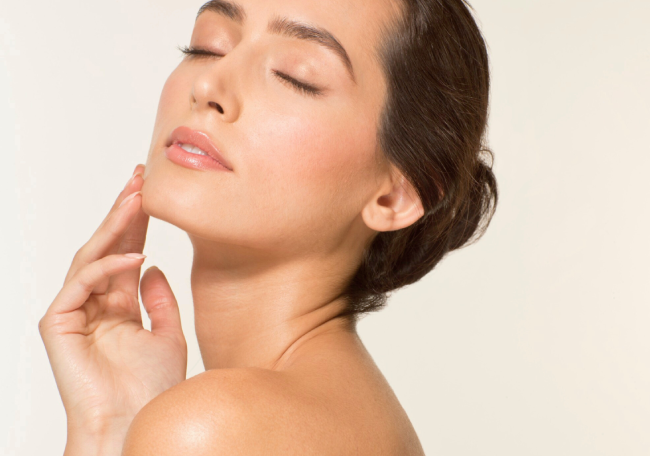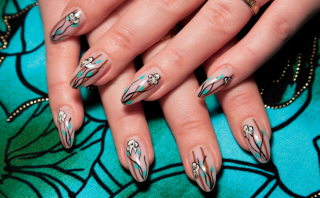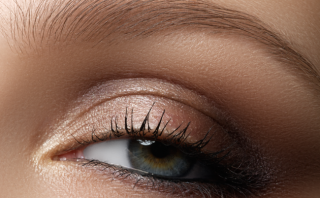If you’ve been exploring skincare ingredients, you’ve likely come across the term “peptides.” Promising smoother, firmer, and more radiant skin, peptides are the buzzword in the beauty industry—and for good reason. But what exactly are peptides, and why are they making waves in skincare?
This post breaks down everything you need to know about peptides—from what they are to their incredible benefits and how to incorporate them into your routine. By the end, you’ll know why adding peptides to your skincare regimen might just be the best thing you do for your skin.
What Are Peptides in Skincare?
Peptides are short chains of amino acids, which are the building blocks of proteins like collagen and elastin in your skin. Think of them as essential messengers that signal your skin to perform specific functions like producing collagen or repairing damage.
Here’s the catch—the natural collagen and elastin in your skin break down over time due to ageing, UV exposure, and other environmental factors. Peptides step in to help reverse this process by encouraging your skin to rebuild and repair itself.
Types of Peptides in Skincare
Not all peptides are created equal. Different types serve specific purposes in skincare formulations. Here’s an overview of the most common ones you’ll find on ingredient labels:
- Signal Peptides: These peptides stimulate your skin cells to produce more collagen and elastin. They send ‘repair’ signals to promote firmer and more youthful-looking skin.
- Carrier Peptides: Carrier peptides deliver essential minerals—like copper and magnesium—to the skin, improving its overall function and vitality.
- Enzyme-Inhibitor Peptides: These prevent the enzymes in your skin from breaking down collagen. This helps in maintaining firmness and elasticity over time.
- Neurotransmitter-Inhibitor Peptides: Dubbed as “Botox-in-a-bottle,” these peptides reduce facial muscle tension, which can soften the appearance of fine lines and wrinkles.
Benefits of Peptides in Skincare
Peptides offer numerous benefits for your skin, making them a must-have ingredient if you’re serious about your skincare routine.
- Anti-Aging Effects: Peptides are widely celebrated for their anti-aging properties, as they help to stimulate collagen production. This reduces the appearance of fine lines, wrinkles, and sagging, leaving your skin looking plump and youthful.
- Skin Repair and Healing: If your skin barrier is damaged, peptides can help restore it by boosting hydration and strengthening its natural defences. This makes it ideal for repairing environmental or sun-related damage.
- Boosting Resilience: Skin treated with peptides becomes more resilient to external aggressors, such as harsh weather, pollutants, and bacteria.
- Supporting Collagen Production: Collagen production naturally declines as you age, but peptides can keep those levels high by tricking your skin into thinking it needs to generate more.
- Improved Skin Tone and Texture: Peptides also help to smooth out uneven texture and brighten dull skin, giving your complexion a radiant glow.
How to Incorporate Peptides into Your Skincare Routine
Peptides work best when applied topically through serums, moisturisers, and eye creams. Here’s how you can easily add them to your routine:
- Choose a Concentrated Product: Look for high-quality peptide serums with brands like The Ordinary or Paula’s Choice. Serums often provide a more concentrated dose compared to other formulations. There are also some great peptide creams on the market including Coxir Intensive EGF Peptide Cream.
- Layer Correctly: Apply peptide-containing products right after cleansing and toning but before heavier treatments like oils or SPF.
- Pair Smartly: Peptides pair well with ingredients like hyaluronic acid for hydration but may degrade when used with acids like AHAs or BHAs.
- Be Consistent: Use your peptide product daily or as instructed for long-term results.
Pro tip: Always follow with sunscreen during the day to protect your skin from UV damage and maximise results.
Peptides in Professional Skincare Treatments
If you visit dermatologists or spas, you’ll likely find peptides playing a major role in advanced treatments.
- Microneedling with Peptides: This technique uses micro-injuries to boost collagen and allows peptides to penetrate more deeply into the skin.
- Facials with Peptide-Infused Masks: Spas often use peptide-based masks during anti-aging facials for an instant plumping effect.
Myth-busting Peptides in Skincare
There are a lot of myths surrounding peptides in skincare, so let’s bust some of the most common ones.
Myth 1: Peptides Produce Instant Results
While peptides are effective, they require consistent use over weeks or months to show visible changes.
Myth 2: Peptides Replace the Need for Other Ingredients
Peptides work best as part of a well-rounded routine alongside hydrating agents (like hyaluronic acid) and protective ingredients (like antioxidants).
Myth 3: Only Older Skin Benefits from Peptides
Preventative use of peptides in your 20s or 30s can support long-term skin health and delay early signs of ageing.
The Future of Peptides in Skincare
Peptides are continually being researched and refined, with new formulations promising even better results. With advancements in skincare technology, we can expect more targeted peptide blends that address specific skin concerns beyond just anti-aging.
Frequently Asked Questions
Are there any side effects of using peptides in skincare?
Peptides are generally well-tolerated by most skin types. However, if you have sensitive skin, always patch-test a new product before applying it to your face.
Can peptides help with acne?
Yes, peptides can support healing and improve the skin barrier, which may reduce acne flare-ups and post-inflammatory marks over time.
Are peptides effective for sensitive skin?
Absolutely. Peptides are gentle and non-irritating, making them suitable even for sensitive skin types. Consult your dermatologist if you’re unsure.





